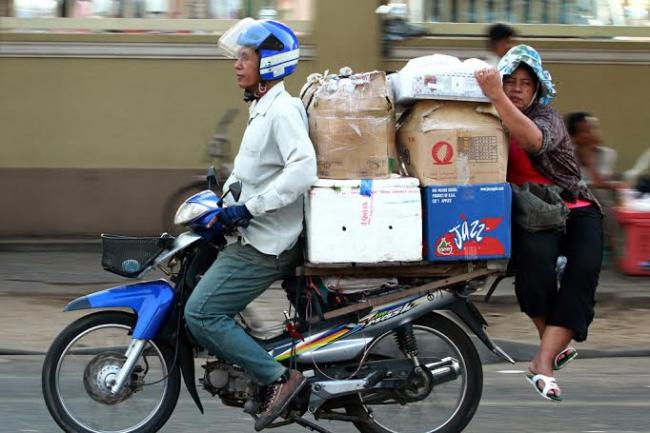24 Nov 2015, 05:42 am Print

“The past weeks have been marked by a number of worrying developments: increasing tensions between the two principal political parties; incidences of violence; intimidation of individuals; and resort to offensive language in the political discourse,” said the UN Special Rapporteur on the situation of human rights in Cambodia, Rhona Smith in a news release.
Smith's warning comes in the wake reports that Sam Rainsy, leader of the Cambodia National Rescue Party (CNRP), has been summoned to appear in court on 4 December for allegedly being complicit in the falsification of public documents, the use of false public documents, and incitement to cause serious chaos to security and social order in the capital, Phnom Penh.
According to the news release, issued by the Office of the High Commissioner for Human Rights (OHCHR), this follows the issue of an arrest warrant by the court on 13 November, on the basis of Rainsy's 2011 conviction for 'public defamation and instigation of discrimination,' and the removal of his parliamentary immunity by the National Assembly on 16 November 2015.
Secretary-General Ban Ki-moon also calledthe issuance of arrest warrant against Rainsy a “worrisome development” and stressed on the need to resume dialogue and called on all political players to refrain from violence, intimidation and harassment.
Further, OHCHR said that on 30 October 2015, legislators voted to remove the Vice-President of CNRP, Mr. Kem Sokha, from his position as First Vice-President of the National Assembly.
“My interest is not in, and my role is not to interfere with, national politics. Neither do I wish to comment on the merits of the judicial actions against anyone, including Mr. Sam Rainsy, unless such acts infringe on the rights of the accused, including the rights to due process of law, including a fair trial and the rights of all accused persons,” said the Smith, who has been monitoring closely the situation of human rights in Cambodia since her appointment in March 2015 by the UN Human Rights Council.
She went on to express concern regarding multiple alleged violations of peaceful exercise of freedoms of opinion and expression, as well as the right to participate in political life, all of which are guaranteed by the International Covenant on Civil and Political Rights to which Cambodia is a party.
Smith sounded the alarm at the violent assault against two CNRP Parliamentarians on 26 October following a large-scale pro-Government protest outside Cambodia's National Assembly building in Phnom Penh allegedly amidst the presence of law enforcement officers, who apparently did not intervene to stop the assaults.
The independent expert recalled that the Cambodian Government is under international human rights obligations to guarantee the physical security of all persons under its jurisdiction, including parliamentarians.
All elected leaders have a responsibility to act in the interest of those whom they represent. With such power comes responsibility. Rather than resorting to divisive language and fuelling racist sentiments, political leaders have a responsibility to act to safeguard national peace and public order,” Smith emphasized.
Lastly, the Special Rapporteur said that she has appealed in private to both parties to abide by their May agreement, and to demonstrate mutual respect by returning to the 'culture of dialogue' so that the people of Cambodia can continue to enjoy their human rights in an environment of political stability and peace.
Special Rapporteurs, who are not UN staff and are independent from any government or organization, are appointed by and report to the Geneva-based UN Human Rights Council.
Photo: World Bank
- Caught on camera: Two foreigners assaulted in Israel in an alleged racial attack
- Pakistan: Parents heartbroken after court sides with man accused of kidnapping minor Christian girl
- Pakistan: Trafficked 35 years ago, Bangladesh-born woman approaches court against FIA for offloading her from flight!
- Hindu tea worker found bound and bloodied in Bangladesh garden during general elections; investigation underway
- Brutal killing shakes Bangladesh: Hindu trader hacked to death ahead of polls





-1763561110.jpg)
